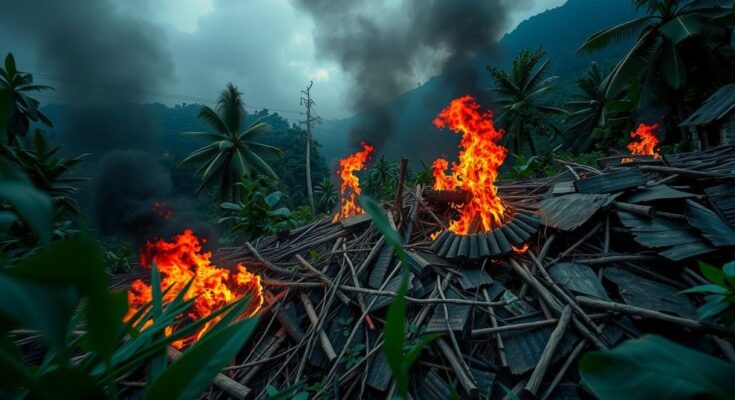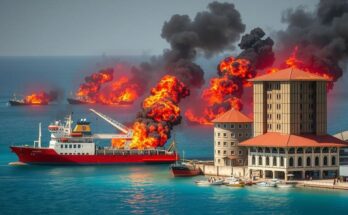The Democratic Republic of Congo (DRC) is embroiled in ongoing conflicts attributed to historical power struggles, ethnic tensions, poor governance, and resource exploitation. Since its independence in 1960, the DRC has experienced violence exacerbated by colonial legacies and regional interventions, resulting in humanitarian crises. As over a hundred armed groups vie for control, millions of civilians suffer from displacement, violence, and poverty. To end the fighting, it is essential to seek justice for victims, provide humanitarian aid, and empower local civil society.
The Democratic Republic of Congo (DRC) has been embroiled in a complex and protracted crisis, originating from a series of power struggles that followed its independence from Belgium in 1960. The persistence of this conflict can be attributed to various factors including deep-rooted ethnic tensions, intense political rivalry, rampant corruption, and fierce competition for control of an abundance of natural resources. The conflict, particularly pronounced in the eastern regions bordering several East African nations, has resulted in the proliferation of over a hundred active armed groups, many of which are local militias formed as a means of community protection in an environment characterized by instability and violence. The driving forces behind these conflicts include poor governance and ineffective post-colonial state-building strategies, alongside severe disputes over land and resource access. Ethnic fragmentation, a leftover from colonial boundary decisions, continues to fuel divisions and conflicts within the population. Moreover, the DRC’s wealth in natural resources, such as coltan, gold, and cobalt, has become both a boon and a curse, financing continuous cycles of violence among various factions. The legacy of colonial governance, marked by corruption and vacuity, has left the DRC in a precarious state following the abdication of Mobutu Sese Seko in 1997. Regional interference, notably from neighboring Rwanda and Uganda, has intensified the conflicts, particularly following the genocide in Rwanda in 1994. These factors have contributed to the country’s descent into warfare, most notably during the First and Second Congo Wars, which resulted in profound humanitarian crises and violations of human rights. The current humanitarian plight of Congolese people is severe, with millions displaced, suffering from violence, hunger, and lack of access to essential services. In order to ameliorate the situation and end the relentless conflicts, there is an urgent need for accountability and justice for victims, along with a concerted effort to provide humanitarian aid, and to empower civil society. Addressing historical grievances and ensuring the acknowledgement of violence’s toll on the population are vital steps toward reconciliation and peace.
The conflict in the Democratic Republic of Congo (DRC) has historical roots dating back to its colonization by Belgium and the ensuing struggles for power and control over natural resources. After gaining independence in 1960, the nation faced a series of internal and external conflicts exacerbated by governance failures, ethnic divisions fostered by colonial policies, and external interventions from neighboring countries. These multifaceted issues have led to a continuous state of unrest characterized by violence, mass displacement, and humanitarian crises throughout the region.
The pervasive conflict in the Democratic Republic of Congo reflects a complex interplay of historical grievances, governance failures, and external influences that have collectively undermined peace and stability. Addressing these issues through justice, accountability, and humanitarian assistance is imperative in breaking the cycle of violence and fostering a sustainable path toward reconciliation and development for the Congolese people.
Original Source: www.amnesty.org




